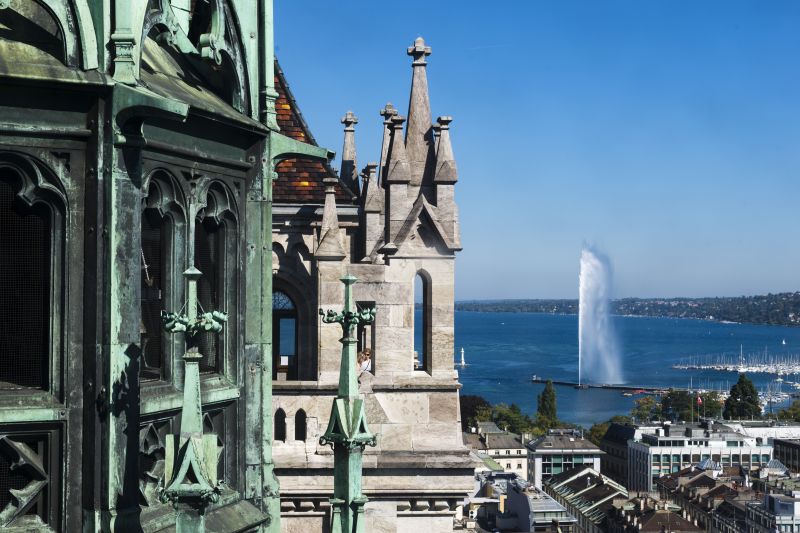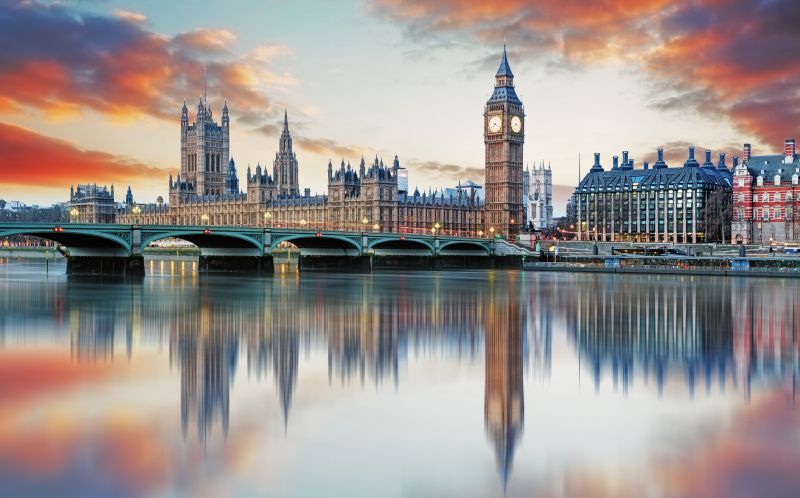Where to go for vaccine tourism Africavisa: Understanding the allure and interes
Time:2024-05-25 Page View:700
With the realization of vaccines being highly effective in combatting COVID-19, vaccine tourism Africavisa has gained momentum. Travellers are flocking to African countries that offer vaccinations not available in their home countries. This trend not only boosts the economies of such countries, but also affords people the opportunity to travel again.
However, the legality and ethics of vaccine tourism have been called into question. Is it right for people to push ahead of citizens in other countries who have not yet received their vaccines? With the risk of new COVID-19 strains being introduced into African countries, some governments are hesitant to support vaccine tourism. Nevertheless, the issue remains a controversial one.
Where can people go for vaccine tourism Africavisa?

With the Covid-19 pandemic still raging across the globe, travel restrictions have made it hard for many people to obtain the much-needed vaccine jab in their own countries. The result is an increasing demand for vaccine tourism, the practice of travelling to another country to get vaccinated. This trend has now expanded to Africa, with more and more people heading to various countries on the continent to get vaccinated against Covid-19. This article aims to guide those seeking vaccination in Africa and provide information on the best places to go for vaccine tourism Africavisa.
1. Seychelles
Seychelles is one of the few countries in Africa that has already achieved herd immunity, with 70% of its population fully vaccinated against Covid-19. The country offers visitors unrestricted access to the vaccine, and no quarantine is required upon arrival. However, visitors must stay for at least 14 days to receive both doses of the vaccine.
The Sinopharm vaccine is being administered in Seychelles, and the vaccination program is open to all visitors over 18 years of age.
2. Malawi
Malawi is another African country that is open to vaccine tourism. The country began vaccinating its citizens in April of 2021 and has since extended its program to foreigners traveling into the country. Visitors are required to have a negative PCR test taken within 72 hours of arrival and undergo a 10-day quarantine before receiving their vaccine dose.
The AstraZeneca vaccine is currently being administered in Malawi, and visitors can receive their first dose upon arrival.
3. Tanzania
Tanzania recently announced that it will begin vaccinating its citizens against Covid-19, with visitors also being eligible for the vaccine. However, the country's vaccine supply remains limited, and no specific details are available regarding the administration of the vaccine to foreigners. Visitors are still required to provide proof of a negative PCR test taken within 72 hours of arrival.
4. Egypt
Egypt was among the first African countries to begin vaccinating its citizens against Covid-19, with the Sinopharm and AstraZeneca vaccines being administered. Visitors can receive the vaccine upon arrival at airports in Cairo, Sharm El-Sheikh, and Hurghada. A valid visa is required to enter Egypt, and visitors must also provide a negative PCR test taken within 72 hours of arrival.
5. Rwanda
Rwanda is another African country that is open to vaccine tourism. The country has been praised for its effective Covid-19 response and has already vaccinated a significant portion of its population. Visitors are required to show proof of travel insurance and undergo a mandatory quarantine at their own cost before receiving the vaccine. The Pfizer vaccine is currently being administered in Rwanda.
What are the risks of vaccine tourism Africavisa?

With the ongoing COVID-19 pandemic, the global demand for vaccines has surged, leading to vaccine tourism. People travel to different countries to access vaccines not available in their home country or regions where vaccines are hard to come by. While this may seem like a viable option for some, there are potential risks involved with vaccine tourism. This article will explore the risks of vaccine tourism Africavisa.
1. Uncertainty of the Vaccine’s Quality and Effectiveness
One of the biggest risks associated with vaccine tourism is the uncertainty of the quality of vaccines being used and their effectiveness. Many countries have approved vaccines that are yet to be authorized by the World Health Organization (WHO) or have not undergone proper clinical trials, which could compromise their safety, efficacy, and quality. Travellers may also fall prey to counterfeit and fraudulent vaccines, putting their health at risk.
Furthermore, the timing of receiving booster shots and subsequent jabs may affect the effectiveness of a vaccine. Different vaccines have different schedules, and receiving doses from different brands may lead to adverse reactions. Additionally, vaccines may vary in effectiveness against different variants of the virus, raising concerns for cross-border transmission.
2. Legal Implications
Another downside of vaccine tourism is the legal implications involved. Some countries may require medical licenses or documentation to receive a vaccine, and tourists may face legal repercussions if they fail to provide them. Furthermore, if travellers experience adverse reactions to the vaccine, it may be challenging to file a lawsuit against the provider in a foreign country, limiting legal recourse options.
3. Ethical Considerations
Vaccine tourism has raised ethical issues surrounding equity and fairness. With vast differences in COVID-19 vaccine accessibility across the globe, vaccine tourism exacerbates existing disparities and highlights the privilege of those who can afford to travel and receive a vaccine. It may also reduce the availability of vaccines for locals who are more vulnerable and at higher risk, belying the importance of global health equity.
4. Health Risks
Travelling during a pandemic comes with inherent health risks, but vaccine tourism adds an extra layer of risk. The process of travelling, including airport congestion and public transportation, increases exposure to the virus. Moreover, visiting a foreign country and receiving a vaccine may lead to unexpected health outcomes and challenges. Travel and vaccinations may also interfere with existing medical conditions and medication regimes.
5. Costs and Logistics
Finally, vaccine tourism can be expensive and logistically challenging. Travellers will have to account for the additional expenses associated with travel, accommodation, and transportation, and the cost of the vaccine itself. Furthermore, getting vaccinated means taking time off work, potential quarantine periods upon arrival, and other logistical hurdles.
What are the risks of vaccine tourism Africavisa?

Since the beginning of the COVID-19 pandemic, one of the main topics of discussion has been vaccines. While many countries have successfully vaccinated a large percentage of their population, others are still struggling to secure enough doses. This has led to the rise of vaccine tourism, where people travel to countries with surplus vaccines to get vaccinated. Africavisa, a new initiative aimed at promoting vaccine tourism in Africa, has raised concerns about the risks involved. In this article, we will explore what these risks are.
1. The risk of counterfeit vaccines
One of the biggest risks associated with vaccine tourism is the possibility of receiving counterfeit vaccines. Unfortunately, there have been reports of fake vaccines being sold in some countries, and it is difficult for travelers to verify the authenticity of the vaccines they receive. This not only puts the vaccine recipient at risk, but it can also undermine the effectiveness of vaccination efforts in the long run if people lose trust in the vaccines.
Another related risk is the fact that some vaccines require multiple doses, and it may be challenging for travelers to receive the required number of doses if they do not stay in the country long enough. This can lead to incomplete vaccination, which can render the vaccine less effective.
2. The risk of spreading new COVID-19 variants
The emergence of new COVID-19 variants has been a major concern for public health officials worldwide. According to experts, vaccine tourism can contribute to the spread of new variants by potentially introducing them to areas that are not prepared to handle them. Moreover, high vaccination rates in some countries can create a false sense of security that may lead to relaxed public health measures, which in turn can facilitate the spread of new variants.
3. The risk of exacerbating vaccine inequities
Vaccine tourism can also worsen existing inequities in access to vaccines. Travelers from wealthier countries who can afford to pay for vaccines may jump ahead of local populations, leaving them without access to vaccines. This can perpetuate existing inequalities and create tensions between different groups of people.
4. The risk of overburdening healthcare systems
Finally, vaccine tourism can put a strain on the healthcare systems of countries that are already struggling to meet the needs of their local populations. Travelers may require medical attention if they experience adverse reactions or other health issues related to the vaccine. This can divert resources away from locals who may also need medical care.
5. The risk of damaging local economies
Vaccine tourism can also have negative effects on the local economies of countries that rely on tourism. If travelers only come to receive vaccines and do not engage in other tourist activities, this can deprive local businesses of much-needed revenue. Moreover, vaccine tourism may contribute to the perception that these countries are only attractive because of their vaccines, which can have long-term effects on their tourism industry.
What is vaccine tourism Africavisa?

Vaccine tourism Africavisa, also known as COVID-19 vaccination tours, is a new form of travel that has emerged in the wake of the pandemic. This type of tourism involves traveling to countries that offer COVID-19 vaccines to non-residents, either for free or at a cost. The concept behind this is simple: to get vaccinated quickly while visiting a new place and having a vacation at the same time.
1. The rise of vaccine tourism Africavisa
With the slow vaccine rollout in many countries around the world, vaccine tourism is becoming increasingly popular. Wealthy people from countries where vaccines are scarce or hard to access are traveling to countries that have an abundant supply of vaccines. Some of the most popular tourist destinations for COVID-19 vaccination tours include the United States, Russia, the United Arab Emirates, India, Mexico, and now, Africa.
In recent months, African countries such as Egypt, Ghana, Morocco, and South Africa have opened their doors to vaccine tourism. Many of these countries offer all three WHO-approved vaccines: Pfizer-BioNTech, Moderna, and AstraZeneca. This has created a new form of tourism that is beneficial for both the travelers and the host country's economy.
2. The benefits and drawbacks of vaccine tourism Africavisa
The benefits of vaccine tourism Africavisa are obvious. With the pandemic still raging in many countries, getting vaccinated can be a life-saving decision. COVID-19 vaccination tours also provide an opportunity to travel to new places and support the local economy. For countries that have struggled with the economic impact of the pandemic, vaccine tourism can bring much-needed revenue and tourism dollars.
However, there are some concerns about vaccine tourism Africavisa. Some worry that this form of travel could exacerbate global vaccine inequality, leaving vulnerable populations in low-income countries without access to vaccines. Others are concerned that vaccine tourism could strain local healthcare systems and resources.
3. How to plan a vaccine tourism Africavisa trip
If you're considering a vaccine tourism Africavisa trip, there are some important things to keep in mind. First, check the country's requirements for vaccine eligibility. Some countries may only offer vaccines to residents or specific age groups.
Next, research the availability of vaccines and the cost. While some countries offer vaccines for free, others charge a fee. It's also important to factor in the cost of travel, accommodation, and other expenses. Some travel agencies now offer specialized vaccine tourism packages to help travelers navigate the process.
4. The future of vaccine tourism Africavisa
Vaccine tourism Africavisa is still a relatively new phenomenon, and it remains to be seen how it will evolve in the coming years. As vaccine distribution becomes more widespread, it's possible that vaccine tourism will no longer be necessary. However, for the time being, vaccine tourism is providing a much-needed boon to the travel industry and giving people an opportunity to protect themselves against COVID-19 while enjoying a vacation.
Why are people interested in vaccine tourism Africavisa?

Vaccine tourism, the act of traveling abroad to receive a COVID-19 vaccination, has become an increasing trend. One region that has seen a surge in vaccine tourism is Africa, with Africavisa being a popular option. But why are people interested in vaccine tourism Africavisa specifically? In this article, we will explore this topic through a variety of angles.
1. Lack of Access to Vaccines in Home Countries
One of the primary reasons individuals opt for vaccine tourism is a lack of access to vaccines in their home countries. This is particularly true for individuals living in developing countries or rural areas with limited medical resources. Africavisa, located in Tanzania, offers the Johnson & Johnson vaccine, which only requires one dose, making it an attractive option for those seeking immediate protection against COVID-19.
Furthermore, some developed countries have been experiencing slow vaccine rollout due to supply and logistical issues. In contrast, Africa has received donations from various entities such as COVAX and is moving at a quicker pace in vaccination efforts.
2. Desire to Travel and Support Local Economies
With many individuals having been cooped up in their homes for extended periods, there is a pent-up desire for travel. A combination of vaccine protection and travel makes for an appealing package. Additionally, some choose Africavisa as a way to support the local economy. The pandemic and associated travel restrictions have negatively impacted African tourism. By choosing to be vaccinated in Africa, individuals are helping stimulate the local economy.
3. Availability of Business Opportunities
Not all individuals seeking vaccine tourism are leisure travelers. Some are business executives looking for opportunities in Africa while obtaining a vaccine. This trend can be seen in the rise of "medical tourism" that has been occurring in developing countries for several years before the COVID-19 pandemic.
Entrepreneurs see an opportunity in offering vaccine tourism packages that include not only vaccinations but also access to business networks and potential investment opportunities. The success of such ventures will be determined by the state of the local economy and the vaccine's efficacy, among other factors.
4. Fears of Running Out of Vaccines
Some individuals fear that their home country will run out of vaccines before they can receive one. With the uncertainty regarding the outbreak and vaccine supply chain issues, Africavisa offers a backup plan.
In some cases, like when India began experiencing a severe outbreak, countries canceled the delivery of vaccines, resulting in individuals' appointments being delayed. With the current situation remaining unstable, individuals choose Africavisa as a way to protect themselves from this possible worst-case scenario.
5. Perception of Vaccine Quality
Another factor driving vaccine tourism to Africa is a perception of the quality of vaccines being offered. While vaccines like Pfizer, Moderna, and AstraZeneca have earned emergency use approvals by various regulatory bodies globally, with some countries even pulling the AstraZeneca vaccine due to concerns of blood clotting, Johnson & Johnson's vaccine has remained popular. There is a belief that certain countries offer subpar vaccines, leading people to pursue vaccination elsewhere.
Where can people go for vaccine tourism Africavisa?
Vaccine tourism has become a popular trend in recent times, with many people traveling overseas to receive the COVID-19 vaccine. One of the top destinations for vaccine tourism in Africa is Africavisa, a leading healthcare provider in the region. Whether you are looking to get vaccinated quickly or seeking a unique travel experience, Africavisa is an excellent option for vaccine tourism.
1. Why choose Africavisa for vaccine tourism?
Africavisa is a trusted healthcare provider in Africa that offers affordable and reliable medical services. The company has a team of experienced medical professionals that provide quality care and personalized attention to all patients. In addition, Africavisa is equipped with state-of-the-art medical facilities and equipment, ensuring that patients receive the best possible care.
When it comes to vaccine tourism, Africavisa offers a range of COVID-19 vaccines, including Pfizer, Moderna, and AstraZeneca. The company ensures that all vaccines are World Health Organization-approved and administered by trained medical professionals. Moreover, Africavisa provides travel packages that include vaccination, lodging, and other amenities, making it a convenient option for travelers.
2. What are the benefits of vaccine tourism at Africavisa?
Vaccine tourism at Africavisa has several benefits, including:
Fast and efficient service: Africavisa offers same-day vaccination appointments, allowing patients to get vaccinated quickly and return home. As such, it is an excellent option for those looking to get vaccinated as soon as possible.
Affordable prices: Africavisa's vaccine tourism packages are reasonably priced, making it an accessible option for people from different socio-economic backgrounds.
Safe and effective vaccines: Africavisa only offers WHO-approved vaccines that have been tested and found to be safe and effective against COVID-19.
3. What is the process of getting vaccinated at Africavisa?
The process of getting vaccinated at Africavisa is straightforward and hassle-free. The first step is to book an appointment online or by phone. On the day of the appointment, patients are required to arrive at the clinic early to complete paperwork and undergo a medical evaluation. If deemed eligible for vaccination, patients will receive their shot and be monitored for any adverse reactions. After vaccination, patients are required to rest for a short period before being allowed to leave the clinic. Africavisa also provides follow-up care and support for patients after vaccination.
4. Are there any risks associated with vaccine tourism at Africavisa?
Like all medical procedures, getting vaccinated at Africavisa comes with certain risks. These include side effects such as fever, fatigue, headache, and muscle pain. However, these side effects are generally mild and short-lived. Moreover, Africavisa takes all the necessary precautions to ensure the safety and well-being of its patients. The clinic follows international guidelines for vaccine administration and provides thorough post-vaccination care and monitoring.
5. What else can travelers do in Africavisa?
Apart from getting vaccinated, travelers to Africavisa can enjoy a range of cultural and tourist activities. The region has numerous historic landmarks, cultural sites, and natural attractions such as nature reserves and wildlife sanctuaries. Africavisa also offers tours and packages that combine vaccination with sightseeing and other activities, making it an excellent option for those looking for a unique travel experience.
What is vaccine tourism Africavisa?
Vaccine tourism has become a hot topic as people around the world seek to protect themselves against Coronavirus infections. Africavisa is one such organization that offers visa services to international tourists looking for COVID-19 vaccination in African countries. For people who are unable to get vaccinated in their home country due to various reasons such as a shortage of vaccines, limited availability or high costs, it can be a viable option. However, this practice has also led to controversy and ethical concerns. In this article, we will explore more about what vaccine tourism Africavisa is and its impact on the tourism industry.
1. What is Africavisa?
Africavisa is a travel agent that offers visa services, flight bookings, and accommodation services to travelers looking to visit African countries. With the arrival of vaccines in several African countries, Africavisa has added COVID-19 vaccinations as part of their service offering.
Many African countries have started receiving significant supplies of vaccines from various sources such as the COVAX initiative, donations from developed nations or through bilateral agreements. Some of these nations have also relaxed their vaccination policies to allow foreign travelers to get vaccinated in their borders. Africavisa helps people navigate these policies and requirements, making the process of securing a visa and COVID-19 vaccine easier and more accessible.
2. How does vaccine tourism work?
Vaccine tourism works by traveling to a foreign country to get a COVID-19 vaccine. The process usually involves booking a trip with Africavisa or a similar provider that offers vaccine tourism services. The service providers take care of the visa application, flight bookings, and accommodation arrangements. Once the traveler arrives at their destination, they will receive the vaccine as well as a vaccination certificate. The certificate is essential for travel purposes and proves that the traveler has been vaccinated against COVID-19.
3. The positive impact of vaccine tourism Africavisa
One of the positive impacts of vaccine tourism Africavisa is that it helps to boost the tourism industry in African countries. Many nations have been hit hard by the pandemic, with travel restrictions and border closures affecting the tourism sector. Vaccine tourism provides a new revenue stream, creating job opportunities and bringing money into the local economy.
Furthermore, vaccine tourism helps to address the global problem of vaccine inequality. While developed countries have made significant progress in vaccinating their citizens, poorer nations are struggling to secure enough doses. Vaccine tourism provides people in these countries with access to vaccines that they may not have otherwise received.
4. The negative impact of vaccine tourism Africavisa
While vaccine tourism has its benefits, it has also sparked ethical concerns. Critics argue that the practice fosters vaccine inequality, leading to a situation where wealthier individuals can access vaccines while poorer people cannot. Furthermore, it creates a scenario where foreigners are prioritized over local communities for vaccines, which could strain resources needed to vaccinate citizens.
Another concern is the impact on the quality of healthcare services. With an influx of international travelers, healthcare workers may be stretched thin, and services may be compromised. This could lead to a rise in infections in the local community and a strain on healthcare facilities.
5. What does the future look like?
Vaccine tourism is likely to continue, as long as there is a demand for vaccines and countries are willing to prioritize international travelers for vaccinations. However, service providers like Africavisa will need to be mindful of the ethical implications of their actions. Governments may also need to put in place regulations that ensure fair access to vaccines for foreign travelers while still prioritizing their own citizens.
Is vaccine tourism Africavisa legal?
As the global vaccination campaign gains momentum, some African countries have taken advantage of the situation by offering Covid-19 vaccines to foreign visitors. This practice, known as vaccine tourism, has raised ethical and legal questions about the distribution of vaccines and the rights of foreigners to access them. In this article, we explore the legal ramifications of vaccine tourism in the context of Africavisa.
1. The concept of vaccine tourism
Vaccine tourism is a new phenomenon that has emerged during the Covid-19 pandemic. It refers to the practice of traveling to another country to receive a Covid-19 vaccine, usually when the vaccine is not yet available in the traveler's home country or when supply is limited. Vaccine tourism has been facilitated by the fact that some countries have been more successful in securing supplies of vaccines than others, creating disparities in access to this life-saving treatment.
While vaccine tourism is not illegal per se, it raises important ethical questions about who should have priority access to vaccines. Many health experts argue that vaccines should be distributed according to need, with priority given to frontline workers, vulnerable populations, and residents of countries with low vaccination rates. Vaccine tourism, on the other hand, can be seen as a form of privilege that perpetuates existing inequalities.
2. The case of Africavisa
Africavisa is a recently launched digital platform that allows travelers to apply for a visa to multiple countries in Africa using a single application. The platform is intended to make travel to Africa easier and more streamlined, and to promote tourism and economic growth on the continent. However, Africavisa has also been criticized for its role in facilitating vaccine tourism.
Currently, several African countries offer Covid-19 vaccines to foreigners, including Seychelles, Egypt, and Morocco. Some of these countries have partnered with Africavisa to promote their vaccine programs to potential visitors. Critics argue that this raises ethical concerns about the allocation of vaccines, as well as questions about the legality of using tourist visas to access medical treatment.
3. Legal considerations
The legal framework for vaccine tourism is complex and varies depending on the country in question. In general, however, travelers are subject to the laws and regulations of the country where they receive medical treatment. This can include requirements for proof of vaccination, medical visas, and payment of fees. In some cases, travelers may be required to quarantine upon arrival in the destination country, which can add to the cost and complexity of vaccine tourism.
The use of tourist visas to access medical treatment is a gray area under international law. While some countries explicitly allow medical tourism, others prohibit it or have no clear policy. The World Health Organization (WHO) advises travelers to research the rules and regulations of their destination country before pursuing medical treatment abroad, and to seek advice from a qualified healthcare provider.
4. Ethical considerations
The ethics of vaccine tourism are more clear-cut. Health experts agree that vaccines should be distributed according to need, with priority given to those at highest risk of contracting and spreading Covid-19. By traveling to another country to receive a vaccine, individuals are essentially jumping the queue and potentially taking doses away from people who are more vulnerable.
Furthermore, vaccine tourism can exacerbate existing inequities in healthcare access, as it tends to benefit wealthier individuals who have the resources to travel. This can perpetuate a cycle of advantage and disadvantage, in which the most vulnerable populations are left behind. To address these concerns, many organizations and governments have called for a more equitable distribution of vaccines, focusing on the needs of the most marginalized communities.
How much does vaccine tourism Africavisa cost?
As the Covid-19 vaccine has become the most sought-after commodity worldwide, “vaccine tourism” has emerged as a trend among the wealthy. One of the most popular destinations for vaccine tourism is Africa. According to reports, many people are getting vaccinated in African countries like Morocco, Egypt, and South Africa by buying vaccine tourism packages. But how much does vaccine tourism Africavisa cost? In this article, we will explore the costs of vaccine tourism in Africa and whether it is worth the money.
1. What is vaccine tourism Africavisa?
Vaccine tourism Africavisa is the act of traveling to African countries to receive Covid-19 vaccines that are not available in the traveler's home country or to avoid the waiting time for vaccinations. The vaccine tourism industry in Africa has thrived due to the unequal distribution of vaccines around the world. Some wealthy people from developed countries have been taking advantage of vaccine shortages in their own countries by traveling to Africa for vaccines.
The vaccine tourism packages usually include a combination of flight tickets, hotel accommodations, and vaccination fees. Travelers can choose different packages based on their individual preferences and requirements. However, the cost of vaccine tourism Africavisa can vary depending on the destination, the type of vaccine provided, and the service providers.
2. How much does it cost to get vaccinated in Africa?
The cost of getting vaccinated in Africa varies by country. In Morocco, for example, the vaccination fee for foreigners ranges from $12-$19 per dose. In South Africa, private hospitals charge around $75-$90 per dose for the Pfizer and Moderna vaccines. In Egypt, the vaccine is free for Egyptians but available for purchase by foreigners at a cost of $16-$18 per dose.
Meanwhile, the cost of vaccine tourism packages in Africa can be anywhere between $2,000 to $10,000 per person. These packages usually include vaccination fees, flight tickets, and accommodation for a week or more. Some premium packages even offer safari tours and other leisure activities. The cost might seem high, but it includes all the convenience and assurance of getting vaccinated without waiting in line or stressing about the vaccine shortage.
3. Is vaccine tourism Africavisa worth the money?
The value of vaccine tourism Africavisa depends on an individual’s preferences, circumstances, and budget. For wealthy people who want to avoid the waiting time, vaccine tourism might be a viable and ethical option. By getting vaccinated in Africa, they can also help boost the regional economy, which has suffered from the pandemic’s impact on the tourism industry.
On the other hand, the ethical concerns about vaccine distribution have been raised by many people. Some argue that vaccine tourism reduces the vaccines available to the local population, who are often under-vaccinated due to a lack of resources. Others criticize vaccine tourism for perpetuating the global inequality in vaccine distribution. It is important to consider these ethical issues before choosing to get vaccinated through vaccine tourism.
4. What are the risks of vaccine tourism Africavisa?
Vaccine tourism Africavisa can be risky due to the uncertain quality of the vaccines and the lack of medical follow-up. According to the World Health Organization (WHO), vaccines may not work as expected if they are not operated properly, stored, or administered. Besides, there is no guarantee that vaccine tourism packages provide vaccines from reputable suppliers or institutions.
In addition, traveling during the pandemic may increase the risk of contracting Covid-19. Vaccinated individuals may still carry the virus and spread it to others. Moreover, the emergence of new Covid-19 variants poses a threat to global health security and could cause difficulties in obtaining booster shots or re-entering the traveler’s home country.
5. Alternatives to vaccine tourism Africavisa
Instead of engaging in vaccine tourism Africavisa, travelers can consider other alternatives such as waiting for vaccinations in their home countries or donating to organizations that provide vaccines and medical assistance to underprivileged areas. Supporting the global distribution of vaccines through international cooperation is crucial to ending the pandemic and ensuring global health security.
Contact Us

